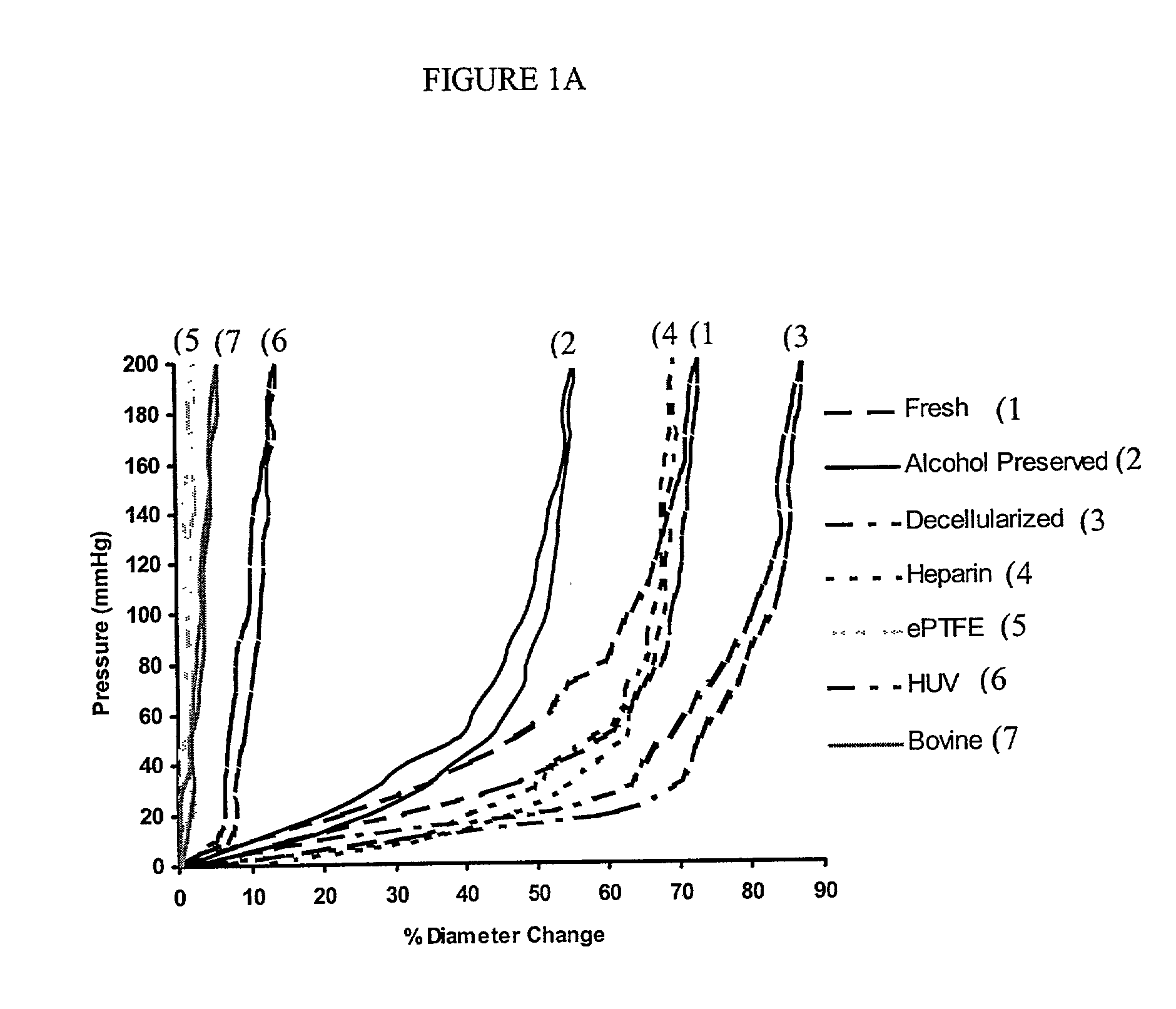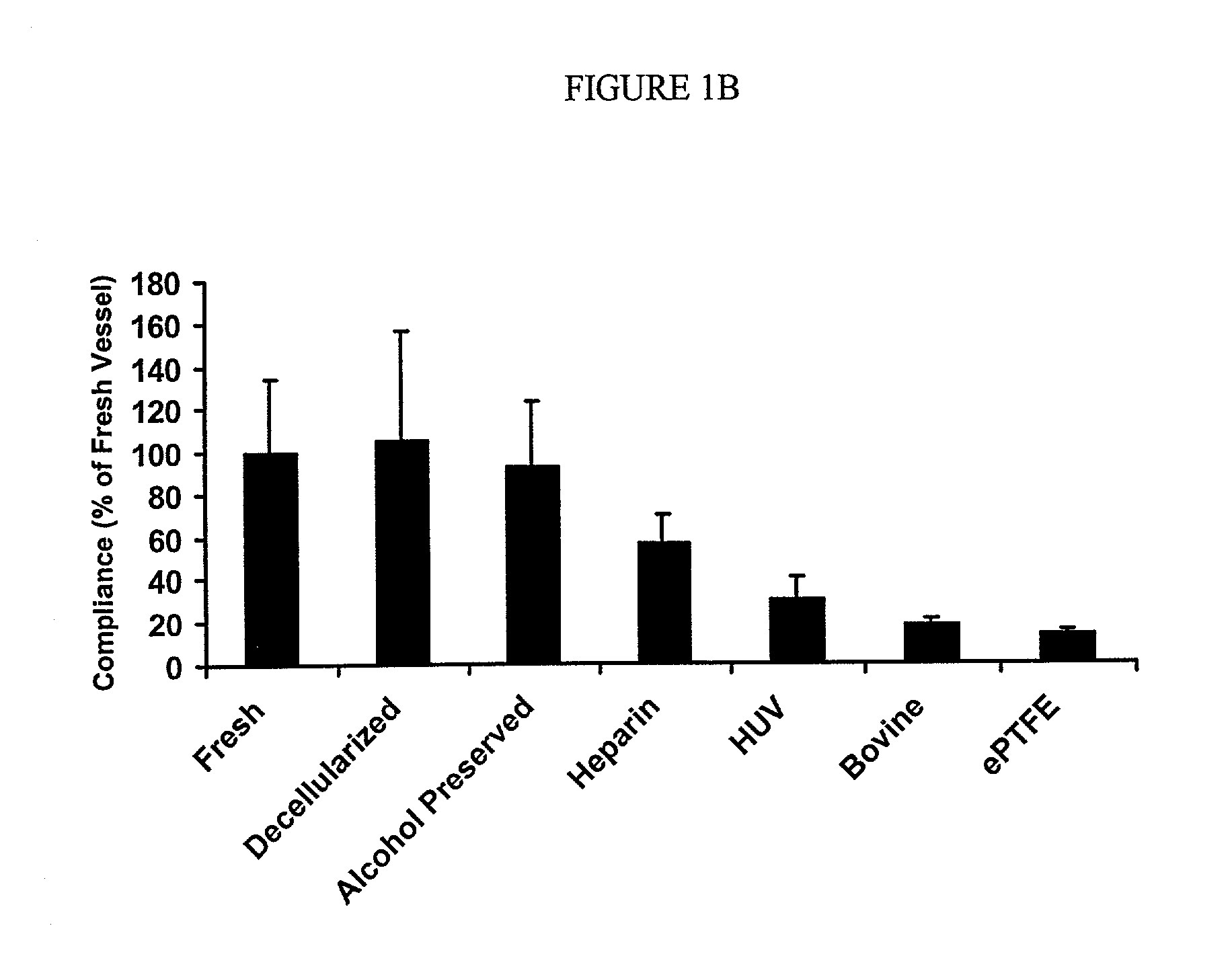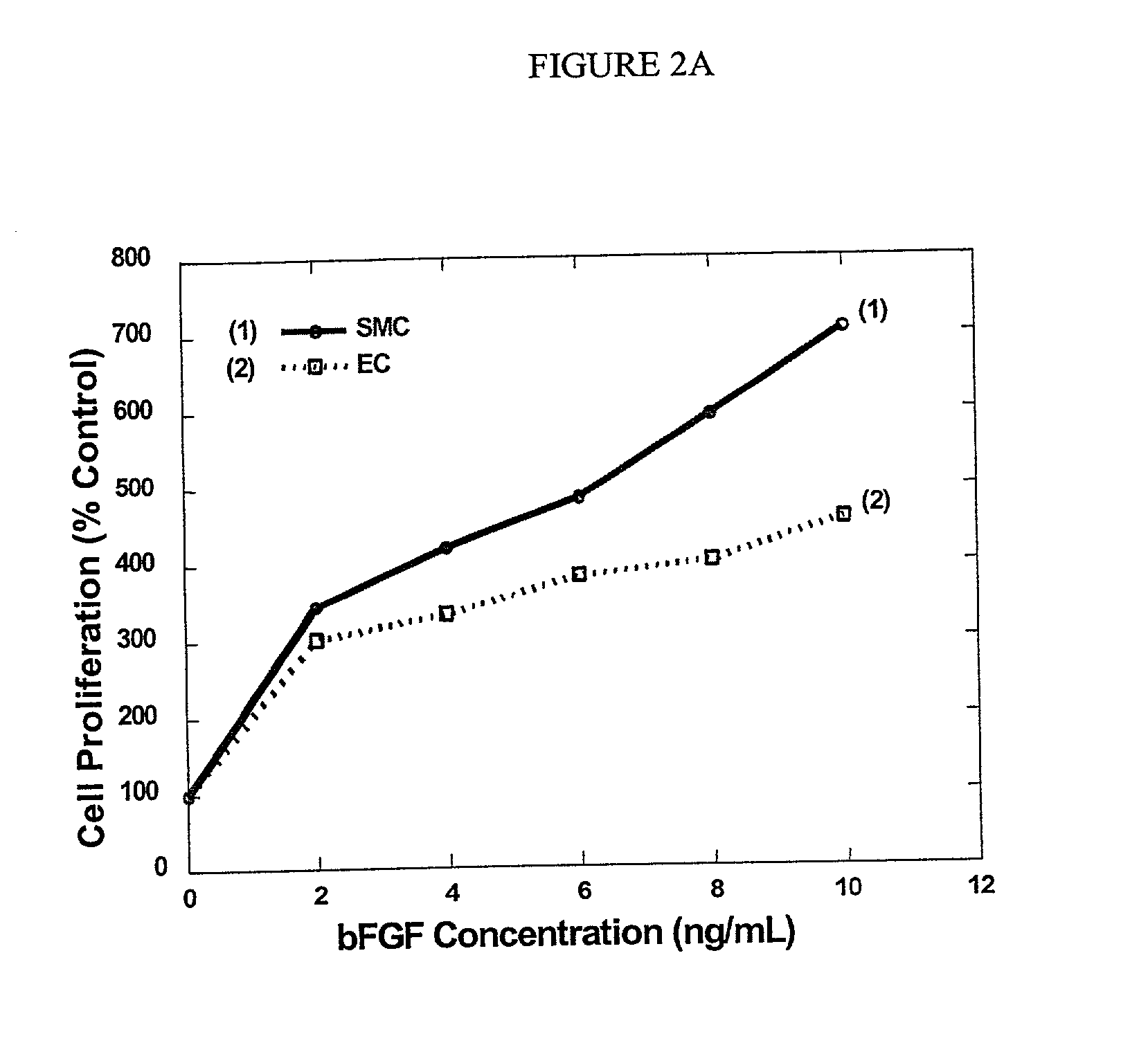Decellularized vascular prostheses resistant to thrombus occlusion and immunologic rejection
- Summary
- Abstract
- Description
- Claims
- Application Information
AI Technical Summary
Benefits of technology
Problems solved by technology
Method used
Image
Examples
example 2
[0086] Light Microscopic and Transmission Electron Microscopic (TEM) Examination
[0087] Histological examination of pig carotid arteries after the decellularization process showed intact internal elastic lamina and elastin lamellar sheets in the media. Hematoxylin and eosin staining did not show any signs of remaining nuclear material in the vessel walls, indicating successful decellularization through the thickness of the vessels. TEM was performed to investigate microstructural changes in the vessels resulting from the decellularization and heparin immobilization processes, and to confirm removal of cellular debris. Results showed complete removal of cellular matter from the medial layers while the basic extracellular microstructure remained intact. Histological staining of a dog EJV valve before the decellularization process showed endothelial cells on the luminal surface of the vein and valve. Smooth muscle cells (SMCs) were present in the media of the vessel. In a decellularized...
example 3
[0088] Biotinylation of Decellularized Vascular Tissue
[0089] Biotinylation of decellularized grafts permitted a study of graft matrix protein metabolism and remodeling after implantation, since histological staining demonstrated the original graft matrix. Newly-formed decellularized prostheses were biotinylated by amino group substitution, using N-hydroxysuccinimidyl-biotin. The decellularized vascular tissues were immersed in 10 ml of N-hydroxysuccinimidyl-biotin (1 nmol / .mu.l in N,N-dimethylformamide) or biotinamidocaproate N-hydroxysuccinimide ester (1 nmol / .mu.l in N,N-dimethylformamide), and incubated on a shaker for 18-24 hours at room temperature. The grafts were then washed in distilled water and stored at 4.degree. C. The efficiency of biotinylation was examined by streptavidin-peroxidase staining according to the method of Chen et al., J. Surg. Res. 60, 409-416 (1996), incorporated herein by reference in its entirety.
[0090] More than 50 decellularized arteries were biotiny...
example 4
[0091] Immobilization of Heparin and bFGF to Decellularized Vascular Tissue
[0092] Decellularized vessels consist primarily of collagen and elastin matrix proteins that have low immunogenicity. These proteins are the most suitable substrates for vascular cell attachment, proliferation, migration, metabolism, and differentiation. Decellularized vessels, however, expose collagen, which has high thrombogenicity, on the luminal surface. Covalent immobilization of heparin to graft matrix proteins reduces the thrombogenicity of the prosthesis.
[0093] bFGF has a strong affinity for heparin (K.sub.d=2.times.10.sup.-9M)-. The heparinized grafts bound with bFGF offer enhanced endothelialization and transgraft cell migration, and an accelerated graft-healing process. Accelerated healing of biohybrid venous valve grafts with complete endothelialization, subendothelial tissue remodeling, and neoangiogenesis may improve long-term graft patency and preserve valve function. Detailed techniques are de...
PUM
| Property | Measurement | Unit |
|---|---|---|
| Time | aaaaa | aaaaa |
| Angle | aaaaa | aaaaa |
| Fraction | aaaaa | aaaaa |
Abstract
Description
Claims
Application Information
 Login to View More
Login to View More - R&D
- Intellectual Property
- Life Sciences
- Materials
- Tech Scout
- Unparalleled Data Quality
- Higher Quality Content
- 60% Fewer Hallucinations
Browse by: Latest US Patents, China's latest patents, Technical Efficacy Thesaurus, Application Domain, Technology Topic, Popular Technical Reports.
© 2025 PatSnap. All rights reserved.Legal|Privacy policy|Modern Slavery Act Transparency Statement|Sitemap|About US| Contact US: help@patsnap.com



